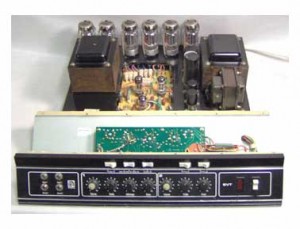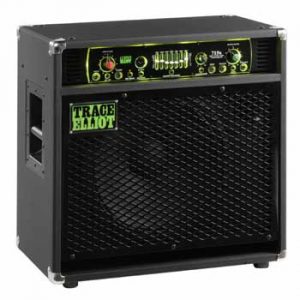Bass Amplifier Repair

Bass Amp repair for most makes from Ampeg , Fender, Marshall, Mesa Boogie to more obscure brands. We perform repairs, customer modifications and service to bass valve amps and bass transistor amps alike including all hybrid valve state circuits. We always repair with genuine manufacturers parts and can also offer alternative replacement parts where necessary. We have access to the schematic drawings and diagrams from most major manufacturers.
Typical faults: As with electric lead guitar amps faults listed below can be anything from blown components to broken connectors, although with bass amps there are often more rattles that need sorting. (normally due to hotmelt glue / silicon becoming unstuck) . We can diagnose faults when we open up the amplifier and check with a meter / scope. We charge a £65 bench charge to open up the amp and diagnose the fault. This covers one hour of labour in fault finding which is deductible against the repair if taken. It is worth noting that generally high power bass amps can suffer more destruction of the circuit boards after failure due to the higher power outputs that bass amps require to give to the speaker.

No Output : could be anything from power / output / preamp / speaker / switches / standby problems.
Revalve : worn valves, rebiased and checked.
Distorted output : Low power rails, blown op amps, incorrect biasing , faulty speaker.
Lack of Volume : Valves , output stage damaged. Input op amps blown.
Intermittent output : Bad connectors , valve sockets , speaker problems
Noisy controls : New pots needed , clean existing pots
Crackles : Pots, Jack Sockets, Valves, Cables
Blows valve resistors : Sometimes wrong transformer wiring ( 230v / 240v )
Front Face light intermittent: bulbs, cables or rheostat
Blowing fuses : Dodgy Valves , S/C components , Faulty Transformers
No lights / power at all : Blown fuses, transformer, bridge rectifiers /standby problems
Buzzing sounds , rattles : capacitors , diodes , rectifiers , reverb units
Amp getting hot – often incorrect bias on transistor stages with too much current flowing through output devices at idle.